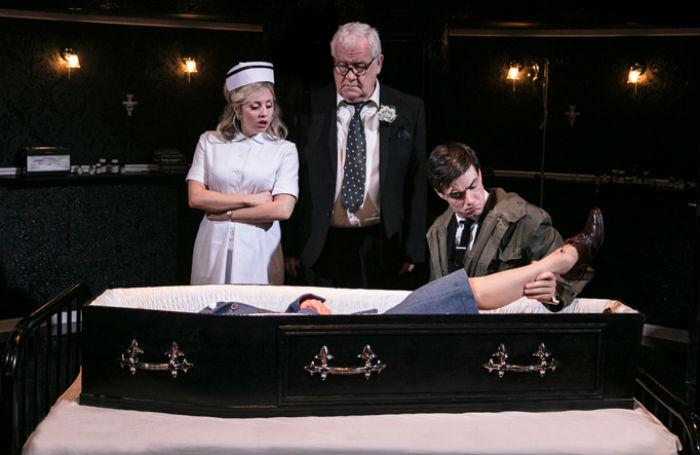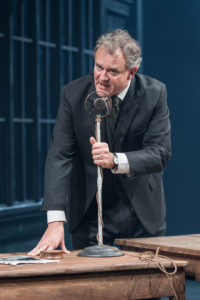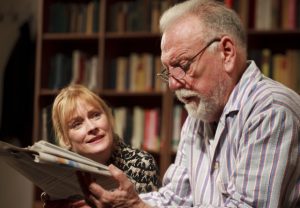[usr=5]

Loot- Still Outrageously Funny After 50 Years
Watch my YouTube review here
It’s 50 years since The Watermill Theatre in Newbury, Berkshire, opened its doors. So happy birthday to them and a big thank you for the birthday present they have given us in the form of Joe Orton’s Loot.
Orton died 50 years ago this year, so it’s appropriate that The Watermill have co-produced a brilliant production that presents us with the original uncensored version of the play for the first time ever.
The play is about two young bank robbers who try to hide their stolen money in a coffin. It may not be as shocking as it must have been to audiences in 1965 but it remains outrageous in its lack of morality and its depictions of the authorities as corrupt and hypocritical.
It’s always been a funny play but it’s all the more hilarious when you experience it as Orton intended without the censorship that was still in force at the time. This means that we can enjoy all of Orton’s intended references to homosexuality, blasphemy and S&M.
Possibly the greatest benefit of seeing Loot minus the blue pencil is that the coffin takes centre stage and the body is played by a real person rather than a dummy. Anah Ruddin‘s limpness as she is taken out of the coffin, placed upside down in a cupboard, stripped naked and wrapped up in a sheet is so funny, she deserves a special category of acting award for playing a corpse.
Among an all round excellent cast, Sinead Matthews is outstanding as the dead woman’s nurse in both her timing and delivery (“had euthanasia not been against my religion I would have practised it – instead I decided to murder her”).
The production does justice to this modern classic
The excellent Christopher Fulford plays a corrupt and increasingly manic plod with no interest in justice. He delivers his comic lines with no shame nor even irony which of course makes them all the more amusing. When it is suggested to him that the police used to be ‘men of integrity’, he replies in all seriousness, “That is a mistake which has been rectified.”
The production does justice to this modern classic. Michael Fentiman directs with a comic touch and keeps up the fast pace that a play with so many farcical elements needs. It’s a shame that its ‘tour’ has only taken in the two small producing venues Park Theatre and The Watermill. It deserves to be seen by everyone who enjoys good, irreverent comedy.
Loot continues at The Watermill in Newbury until 21 October.




